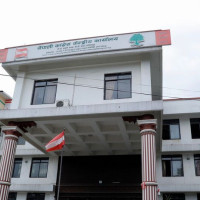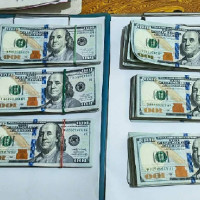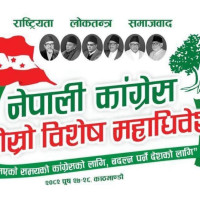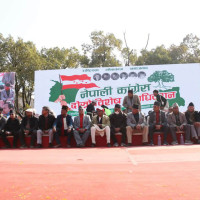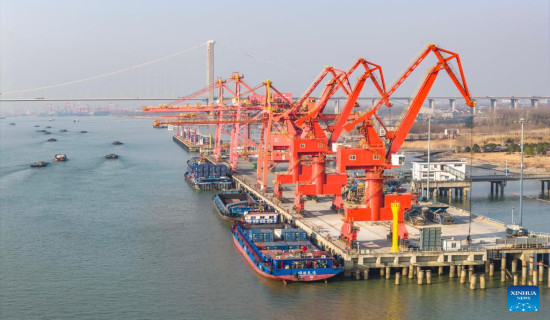- Wednesday, 14 January 2026
Local polls, Modi's visit boost business of Lumbini rickshaw drivers
Lumbini, May 22: Last two weeks were extremely busy for Harihar Bahujan. The 19-year-old rickshaw driver from Pakadi, Mayadevi Rural Municipality–1, Rupandehi barely had enough time to eat and sleep, as he said it.
“I used to leave home with my vehicle at 5 or 6 in the morning and return at 10 or 11 at night,” he told The Rising Nepal on Tuesday. But Bahujan is not complaining. After all, why would he after supposedly earning more money in two weeks than he would earn in a whole month. “The (local) election and Indian Prime Minister (Narendra) Modi’s visit boosted our earnings,” he said, with his electric three-wheeler parked at Mahilwar, near Lumbini Gate No. 5.
Battery-powered rickshaws are a staple of the streets of the Terai and Rupandehi is not an exception. These electric vehicles, with a capacity to accommodate three to five passengers, are used to transport people, goods and occasionally livestock and have become a path to self-employment to many youths of the plains, said rickshaw driver Ali Pathan.
Pathan, 29, a resident of Bhagwanpur, Lumbini Sanskritik Municipality–1, said on Monday that he made around Rs. 5,000 to Rs. 9,000 per day driving people to various destinations in the district. However, in the last couple of weeks, his daily earnings jumped to more
than Rs. 15,000 thanks to election campaigns.
“The big candidates (he said referring to those standing for mayoral positions) use cars and buses but those standing for lower ward-level positions call us to take them and their supporters around the city,” he said.
Pathan was worried that business would slow down after the beginning of the silence period but Modi’s visit on the occasion of Buddha Jayanti prevented that from happening.
“Government officials, journalists, businessmen and general people all descended to Lumbini and those who did not have pre-arranged transport used our vehicles to move around,” he said.
Shiva Mandal, 21, also said the same thing. The driver, who lives in Mahajidiya, Lumbini–10, claimed he earned an average of Rs. 5,000 per day over the last week transporting people to and from the Gautam Buddha International Airport, Siddharthanagar. “A foreign dignitary should visit Lumbini every month,” he chuckled.
However, despite big earnings, rickshaw operators stress that the money does not all go into their pockets.
The automobiles are expensive to maintain, they say. “The batteries alone cost more than Rs. 100,000 to replace,” Bahujan said. “The electronics are sensitive and need to be maintained regularly.”
“Our prices are high because our costs are high,” Pathan said. “Please do not only look at the money we make, also consider the money we have to spend.”
The local election the drivers referred to was held on May 13 and Indian PM Modi visited Lumbini on May 16 on the occasion of Buddha Jayanti.




